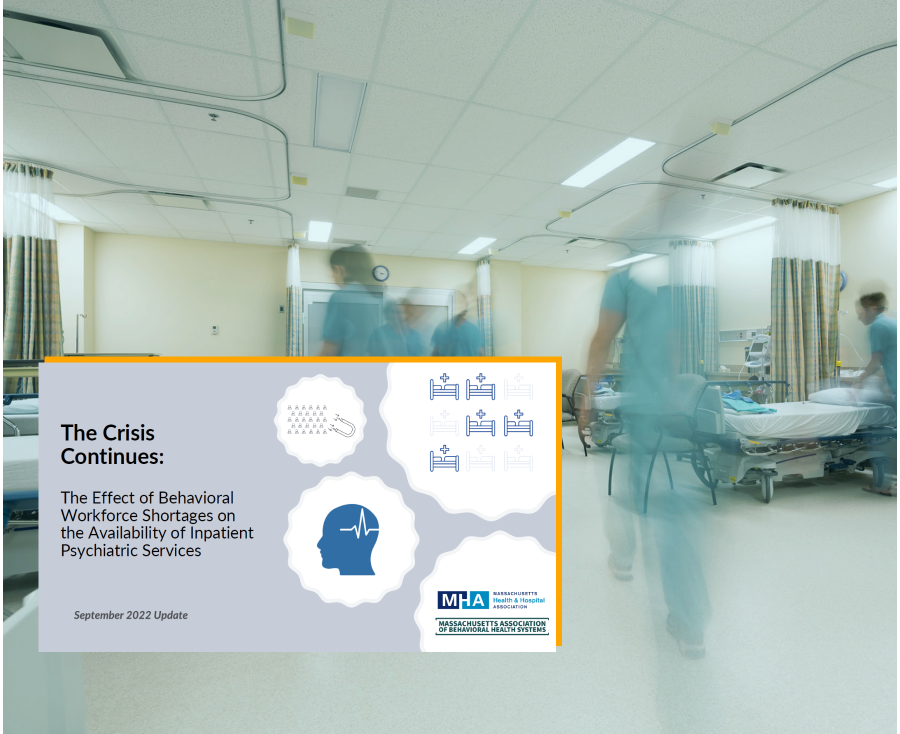The Effect of Behavioral Workforce Shortages on the Availability of Inpatient Psychiatric Services

In recent years and through the pandemic, Massachusetts hospitals, assisted by state government and the behavioral health community, have increased the number of inpatient psychiatric beds to meet the growing demand for mental health services.
But while the number of beds has increased, nearly 20% of them across the state are offline, solely because there are not enough workers to staff them, according to a new survey from MHA and the Massachusetts Association of Behavioral Health Systems (MABHS).
View the Report:
According to the August survey of 56 facilities that represent 2,858 licensed inpatient psychiatric beds, 568 of those beds (19.9%) are offline due to staffing needs. That figure has been steadily increasing from 9% and 14% in February and October 2021, respectively.
The MHA survey found that while facilities need clinical staff at all levels, the greatest number of vacancies are among bachelor’s level mental health workers (504), registered nurses (472), and social workers.
“Between February 2021 and now, the number of full-time equivalent workers needed to staff offline beds in the commonwealth has doubled or more in nearly every category of worker, from R.N.s, to social workers, to sitters and personal care attendants,” said MHA’s Leigh Simons Youmans, senior director, Healthcare Policy.
In 2021, the Baker administration devoted $31 million from American Rescue Plan Act funding to the behavioral health workforce crisis. Hospitals used the temporary funds to increase wages and signing bonuses to incentivize and retain workers at the bedside, and for hiring temporary staff to keep current beds online. In the recent MHA survey, hospitals indicated more help is needed to, among other actions, compel insurers to reimburse more fairly for behavioral health services, to expand loan repayment programs and other workforce development programs, and to create employee well-being support to minimize the great strains of working in the behavioral health sector.
“Compounding the problem is the fact that settings across the continuum are stressed as well,” MHA’s Youmans said. “Patients ready for discharge from inpatient psychiatric beds can wait for weeks or months on inpatient floors while they wait for post-acute, community-based, and Department of Mental Health continuing care beds to become available, further limiting the number of available inpatient beds for those that need them.”
A COVID-19 recovery bill that the legislature passed in late 2021, and Governor Baker signed, contained $111 million for behavioral health workforce loan forgiveness. That forgiveness program is now being designed. The legislation also contained $198.6 million for a behavioral health trust fund that has yet to be allocated.
MHA and MABHS are advocating that the $198.6 million be used for behavioral health workforce recruitment, retention, and pipeline development programs, including expanding scholarship opportunities and loan forgiveness; training across the care continuum to expand capacity to care for and discharge patients with behavioral health needs to non-hospital settings; capital investments in hospital infrastructure to expand behavioral telehealth services; and treatment and diversion programs for incarcerated and/or formerly incarcerated people with mental illness.

 Massachusetts Health & Hospital Association
Massachusetts Health & Hospital Association